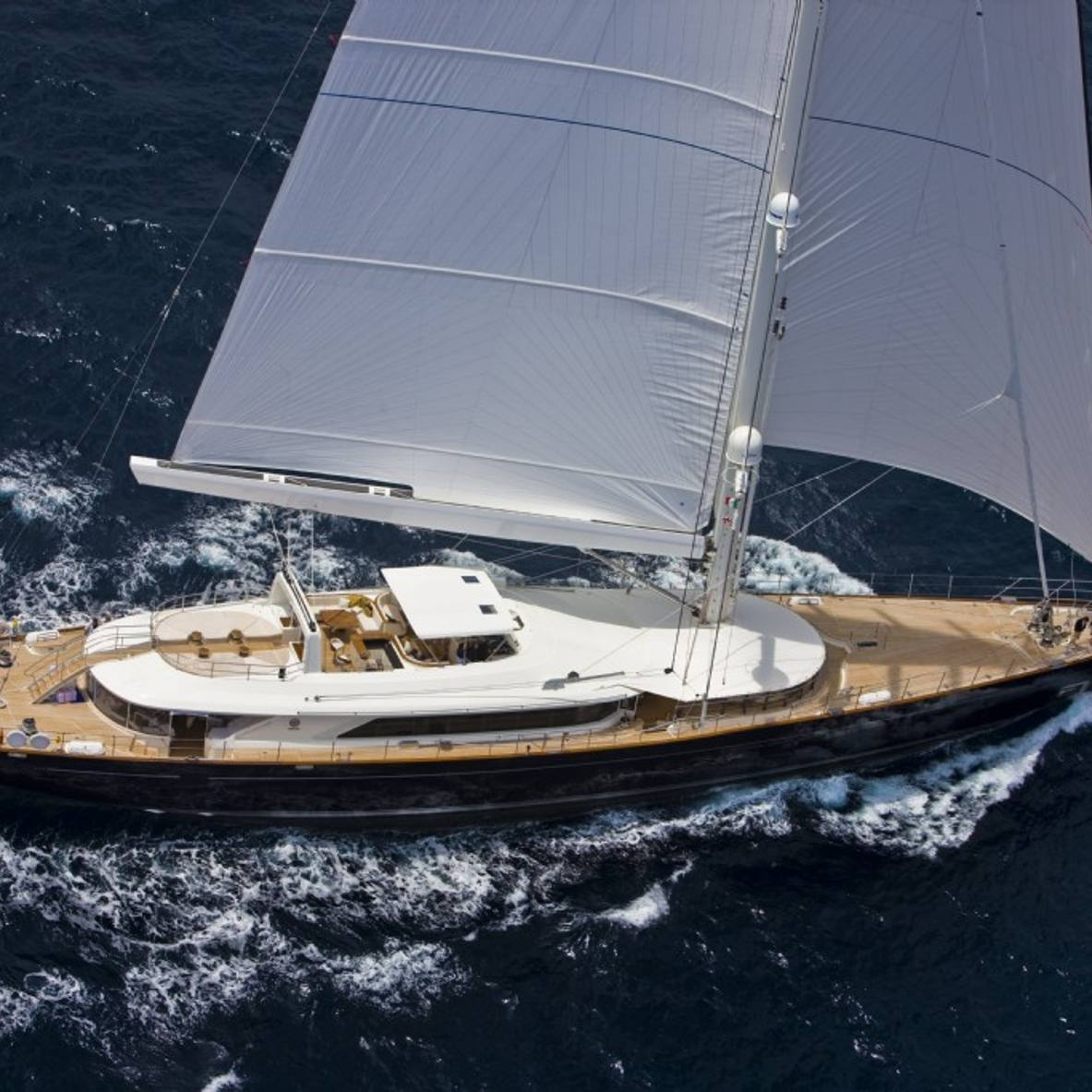Exploring The World Of Yacht Bayesian: A Comprehensive Guide
Yacht Bayesian has become an increasingly popular term among yacht enthusiasts and data scientists alike. The combination of luxury maritime travel and advanced statistical methods offers a unique perspective on optimizing yacht performance, navigation, and ownership. Whether you're a seasoned sailor or a tech-savvy data analyst, understanding the concept of yacht Bayesian can enhance your experience in the yachting world.
For centuries, yachts have symbolized luxury, elegance, and adventure. However, in today's data-driven era, integrating Bayesian methods into yacht operations is transforming the industry. By leveraging statistical models, yacht owners and operators can make smarter decisions, from predicting weather patterns to optimizing fuel consumption and improving overall efficiency.
This article delves into the fascinating intersection of yachting and Bayesian analysis, providing valuable insights for both enthusiasts and professionals. Whether you're planning to purchase a yacht or simply curious about how data science is reshaping the maritime industry, this guide is designed to equip you with the knowledge you need.
Read also:Laquinta Charleston Sc Your Ultimate Guide To Comfort And Hospitality
Table of Contents
- Introduction to Yacht Bayesian
- History of Yachts
- What is Bayesian Analysis?
- How Bayesian Works in Yachting
- Benefits of Bayesian for Yachts
- Types of Yachts
- Choosing the Right Yacht
- Maintenance and Operational Costs
- Future of Yacht Bayesian
- Conclusion and Next Steps
Introduction to Yacht Bayesian
Yacht Bayesian represents the fusion of two seemingly unrelated fields: luxury yachting and advanced statistical modeling. At its core, yacht Bayesian involves applying Bayesian methods to enhance various aspects of yacht operations, including navigation, maintenance, and performance optimization. This approach allows yacht owners and operators to make data-driven decisions, improving efficiency and reducing costs.
Why Bayesian Analysis Matters in Yachting
Bayesian analysis offers a probabilistic framework that enables yacht operators to incorporate prior knowledge and real-time data into decision-making processes. For example, by analyzing historical weather patterns and current conditions, yacht captains can predict potential challenges and adjust their routes accordingly. This not only enhances safety but also improves the overall cruising experience.
Applications of Yacht Bayesian
The applications of yacht Bayesian are diverse and impactful. From optimizing fuel consumption to predicting maintenance needs, Bayesian methods provide actionable insights that can significantly benefit yacht owners and operators. Below are some key applications:
- Predictive maintenance to minimize downtime
- Route optimization for fuel efficiency
- Weather forecasting for safer navigation
- Performance analysis to enhance yacht capabilities
History of Yachts
The history of yachts dates back centuries, with early versions serving as leisure vessels for royalty and the elite. Over time, yachts evolved from simple wooden boats to sophisticated vessels equipped with cutting-edge technology. Today, yachts are not only symbols of luxury but also platforms for innovation, incorporating advancements in engineering, design, and data science.
Evolution of Yachts
The evolution of yachts reflects broader technological advancements. From the introduction of steam-powered engines in the 19th century to the modern use of solar panels and electric propulsion systems, yachts have continually adapted to meet the demands of their owners. The integration of Bayesian analysis is just the latest chapter in this ongoing story of innovation.
What is Bayesian Analysis?
Bayesian analysis is a statistical method that uses probability to update beliefs or predictions based on new evidence. Unlike traditional frequentist statistics, Bayesian methods allow for the incorporation of prior knowledge, making them particularly useful in dynamic environments like yachting. By continuously updating probabilities as new data becomes available, yacht operators can make more informed decisions.
Read also:What Is A Dick Doctor Called A Comprehensive Guide To Urologists And Their Role In Mens Health
Key Concepts in Bayesian Analysis
Understanding Bayesian analysis requires familiarity with several key concepts:
- Prior probability: The initial belief or assumption before new data is considered
- Likelihood: The probability of observing the data given the hypothesis
- Posterior probability: The updated belief after considering new data
How Bayesian Works in Yachting
In the context of yachting, Bayesian analysis can be applied to various operational aspects. For instance, by analyzing past weather patterns and current conditions, yacht captains can predict potential challenges and adjust their routes accordingly. Similarly, Bayesian models can be used to optimize fuel consumption, predict maintenance needs, and enhance overall yacht performance.
Case Study: Bayesian Route Optimization
A recent study conducted by maritime researchers demonstrated the effectiveness of Bayesian methods in optimizing yacht routes. By analyzing historical weather data and real-time conditions, researchers were able to reduce fuel consumption by up to 15% while maintaining optimal performance. This case study highlights the potential of yacht Bayesian in transforming the yachting industry.
Benefits of Bayesian for Yachts
The integration of Bayesian analysis into yacht operations offers numerous benefits. These include improved safety, enhanced efficiency, and reduced costs. By leveraging data-driven insights, yacht owners and operators can make smarter decisions, ultimately elevating the yachting experience.
Safety Enhancements
One of the most significant benefits of yacht Bayesian is its ability to enhance safety. By predicting potential hazards and adjusting routes accordingly, yacht captains can minimize risks and ensure the well-being of passengers and crew.
Efficiency Improvements
Bayesian methods also contribute to improved efficiency. Whether it's optimizing fuel consumption or predicting maintenance needs, these statistical models provide actionable insights that can significantly benefit yacht operations.
Types of Yachts
Yachts come in various sizes and styles, each catering to different needs and preferences. Understanding the different types of yachts is essential for anyone considering yacht ownership or chartering. Below are some common types of yachts:
- Sailing yachts: Powered primarily by sails, these yachts offer a traditional and eco-friendly cruising experience
- Motor yachts: Equipped with powerful engines, motor yachts provide speed and luxury
- Catamarans: Featuring two hulls, catamarans offer stability and spaciousness
- Superyachts: Measuring over 24 meters in length, superyachts are the epitome of luxury and opulence
Choosing the Right Yacht
Selecting the right yacht involves considering several factors, including budget, intended use, and personal preferences. Whether you're planning to sail around the world or simply enjoy weekend getaways, choosing a yacht that meets your needs is crucial for a fulfilling experience.
Factors to Consider
When choosing a yacht, consider the following factors:
- Budget: Determine how much you're willing to spend on purchasing and maintaining a yacht
- Intended use: Decide whether you'll use the yacht for leisure, racing, or chartering
- Size and capacity: Choose a yacht that accommodates your guests and crew comfortably
- Features and amenities: Consider the amenities you desire, such as cabins, entertainment systems, and water toys
Maintenance and Operational Costs
Owning a yacht comes with significant maintenance and operational costs. From regular inspections to fuel expenses, understanding these costs is essential for long-term ownership. Bayesian analysis can help yacht owners predict and manage these expenses more effectively, ensuring a smoother financial experience.
Cost Management Strategies
Implementing cost management strategies is crucial for yacht owners. By leveraging Bayesian models, owners can predict maintenance needs, optimize fuel consumption, and reduce overall expenses. Below are some strategies to consider:
- Regular inspections to identify potential issues early
- Optimized fuel consumption through route planning
- Predictive maintenance to minimize unexpected repairs
Future of Yacht Bayesian
The future of yacht Bayesian looks promising, with ongoing advancements in data science and technology. As more yacht owners and operators embrace Bayesian methods, the industry is likely to witness significant transformations. From autonomous yachts to fully integrated smart systems, the possibilities are endless.
Trends to Watch
Several trends are shaping the future of yacht Bayesian:
- Increased adoption of artificial intelligence and machine learning
- Development of autonomous yachts capable of self-navigation
- Integration of IoT devices for real-time data collection and analysis
Conclusion and Next Steps
Yacht Bayesian represents a groundbreaking approach to optimizing yacht operations through advanced statistical methods. By leveraging Bayesian analysis, yacht owners and operators can make smarter decisions, enhance safety, and improve efficiency. Whether you're a seasoned sailor or a data enthusiast, understanding yacht Bayesian can elevate your yachting experience.
As you embark on your journey into the world of yacht Bayesian, consider exploring further resources and staying updated on the latest developments in the field. Additionally, we invite you to share your thoughts and experiences in the comments section below. Your feedback is invaluable in helping us create content that meets your needs and interests.
Thank you for reading, and we hope this guide has provided you with the knowledge and inspiration to explore the fascinating intersection of yachting and Bayesian analysis.

